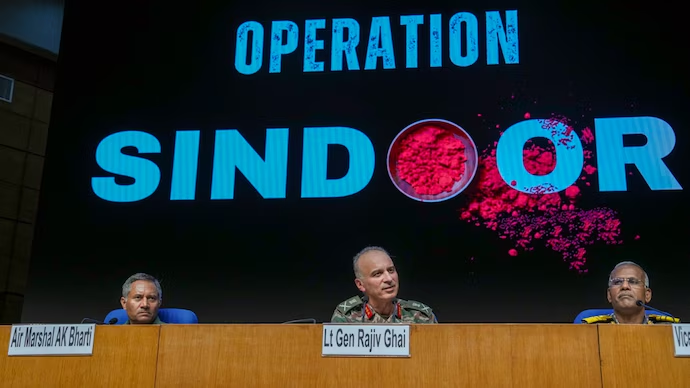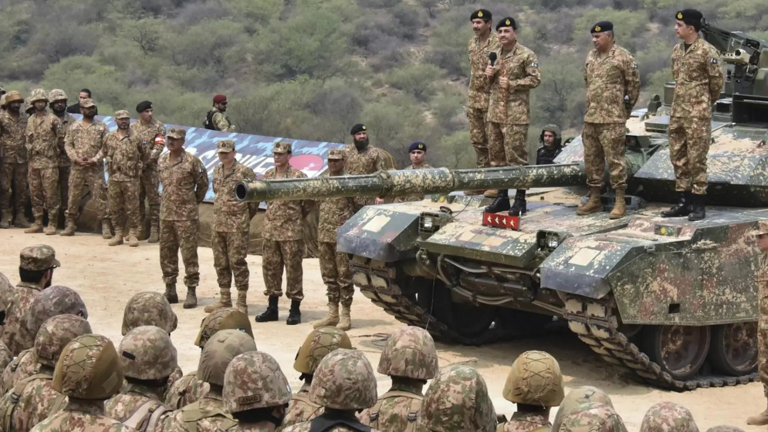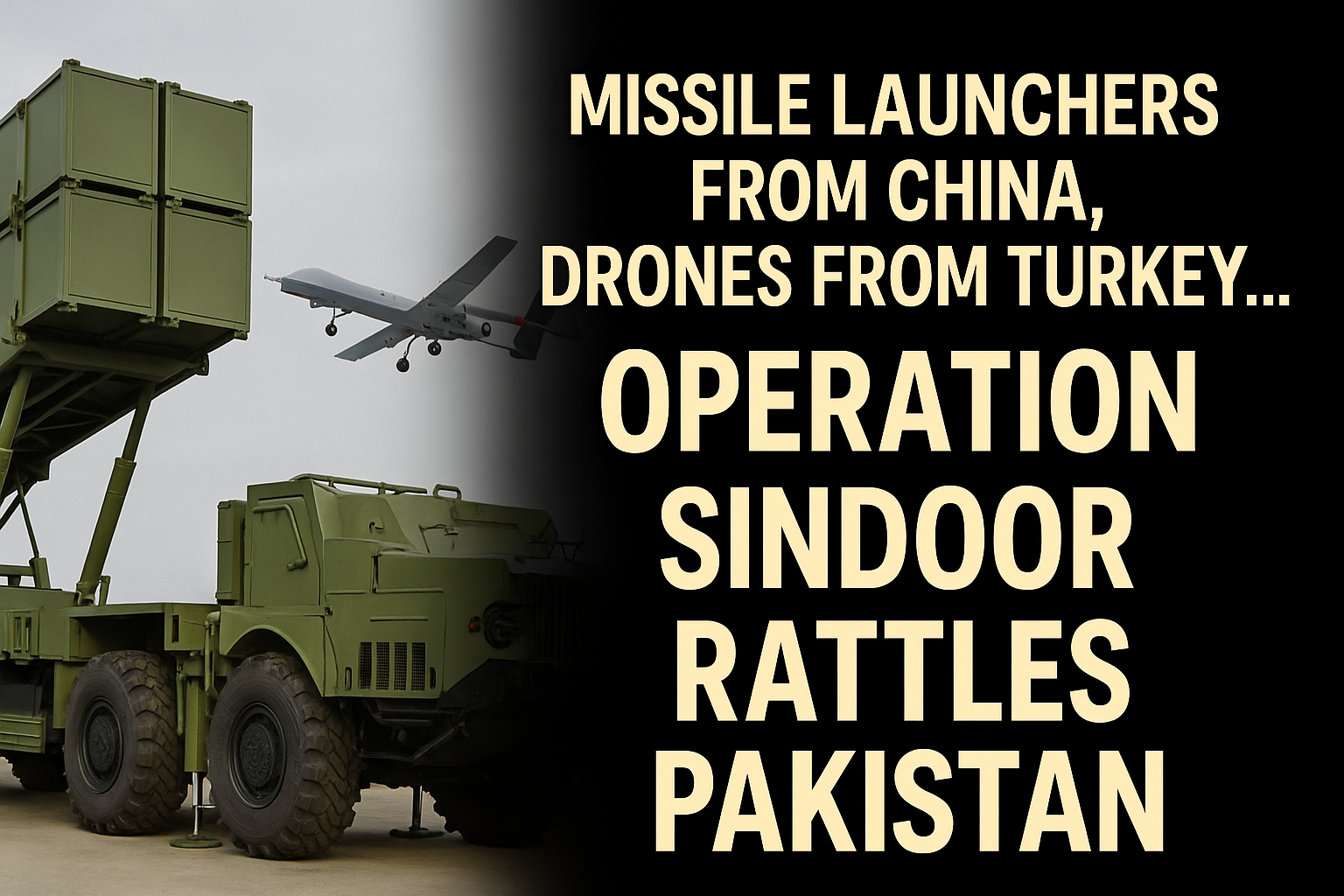
In an unfolding narrative of geopolitics and defense strategies, Pakistan’s military and intelligence agency, ISI, are reportedly amplifying their arms acquisition endeavors. Dubbed as “Operation Sindoor,” the effort underscores a calculated approach to bolster the nation’s defense capabilities amid growing regional tensions and international scrutiny.
The Strategic Collaboration Between Pakistan and Global Suppliers
The arms race in South Asia is not a novel phenomenon, but Pakistan’s latest moves signal a strategic pivot. The nation is increasingly looking towards China and Turkey for state-of-the-art weaponry. According to sources, China has emerged as a key supplier of advanced missile launchers, while Turkey is providing cutting-edge drones. These acquisitions aim to enhance Pakistan’s tactical advantage, particularly in counter-insurgency and border operations.
China’s growing influence on Pakistan’s defense apparatus is well-documented. Over the years, Beijing has not only supplied hardware but has also participated in joint ventures to manufacture and develop sophisticated weapon systems. These collaborative efforts are reflective of the deep-seated geopolitical partnership between the two nations, often seen as a counterbalance to India’s strategic alliances with Western powers.
Turkey, on the other hand, has carved a niche in drone technology, producing unmanned aerial vehicles (UAVs) that have proven their mettle in combat scenarios across the globe. By procuring these drones, Pakistan is not just modernizing its military but also attempting to adopt a more versatile approach to warfare.
Operation Sindoor: A Deep Dive
Operation Sindoor, as intelligence reports suggest, is a covert initiative designed to reinforce Pakistan’s military prowess. While the specifics of this operation remain classified, its implications are far-reaching. The timing of this initiative is critical, coinciding with Pakistan’s internal challenges and external threats. The country faces economic instability, political unrest, and increasing pressure from its neighbors to curb extremist elements within its borders.
The significance of Operation Sindoor lies in its ambition. It is not merely about stockpiling weapons but about reshaping Pakistan’s defense strategy to meet contemporary challenges. This involves acquiring technology that offers precision, adaptability, and a deterrent capability. The integration of Chinese missile systems and Turkish drones is indicative of this broader vision.
Regional Implications of Pakistan’s Arms Build-Up
The acquisition of advanced weaponry by Pakistan has raised eyebrows in neighboring India. The two countries share a fraught history, marked by conflicts and an enduring rivalry. Pakistan’s latest moves are likely to exacerbate tensions along the Line of Control (LoC) and could lead to an arms race in the region.
India, which has been modernizing its military with purchases from the United States, Russia, and France, is unlikely to remain a passive observer. Analysts predict a corresponding escalation in India’s defense spending to counterbalance Pakistan’s moves. This cyclical build-up of arms poses a risk to regional stability and highlights the urgent need for diplomatic engagement.
The Role of International Stakeholders
Pakistan’s arms deals with China and Turkey come at a time when international scrutiny of the country’s activities is intensifying. Both nations have faced criticism for enabling Pakistan’s military expansion, which some argue diverts resources from critical social and economic needs.
The United States and European Union, for instance, have expressed concerns over the proliferation of advanced weaponry in volatile regions. These developments could potentially lead to sanctions or other diplomatic measures aimed at curbing Pakistan’s military ambitions. However, the geopolitical dynamics involving China and Turkey complicate any unified international response.
Domestic Implications for Pakistan
Domestically, Operation Sindoor is a double-edged sword. While it boosts the morale of Pakistan’s armed forces and showcases the government’s commitment to national security, it also diverts significant resources from pressing domestic issues. Pakistan’s economy is grappling with inflation, unemployment, and a dwindling foreign exchange reserve. Critics argue that the focus on military spending exacerbates these challenges and undermines efforts to achieve economic stability.
Moreover, the emphasis on acquiring external defense equipment raises questions about the state of Pakistan’s indigenous defense industry. Despite notable achievements in certain areas, the reliance on foreign suppliers underscores the need for a more self-reliant approach to defense production.
The Broader Geopolitical Context
Operation Sindoor must be understood within the broader geopolitical context of South Asia and beyond. The region is a hotspot for great power competition, with China, the United States, and Russia vying for influence. Pakistan’s growing alignment with China reflects a shift in its foreign policy, driven by mutual interests and shared objectives.
Turkey’s role, though less pronounced, signals a diversification in Pakistan’s strategic partnerships. The country is positioning itself as a key player in the Islamic world, leveraging its technological advancements to build alliances with nations like Pakistan. This alignment is likely to have implications for regional power dynamics and the broader Muslim world.
Economic Realities Behind the Military Aspirations

While Operation Sindoor demonstrates Pakistan’s commitment to its defense strategy, it also highlights the complex interplay between military spending and economic realities. Pakistan’s economic landscape is fraught with challenges that demand immediate attention. The focus on importing expensive weaponry raises concerns about fiscal priorities, particularly when the country is struggling to secure international financial assistance.
Experts argue that sustainable growth in the defense sector requires investment in domestic production capabilities. Over-reliance on foreign suppliers can lead to vulnerabilities, including dependency on external factors for maintenance, upgrades, and replacements. Strengthening Pakistan’s indigenous defense industry could create jobs, enhance technical expertise, and reduce long-term costs.
The Role of Intelligence Agencies in Operation Sindoor
Operation Sindoor is not solely a military endeavor; it also involves significant input from Pakistan’s intelligence agencies, particularly the ISI. These agencies play a crucial role in identifying potential threats, coordinating procurement strategies, and ensuring the secrecy of the operation. Their involvement underscores the multi-dimensional nature of modern warfare, where intelligence and technology are as critical as firepower.
The collaboration between the military and intelligence agencies in Operation Sindoor is indicative of a unified approach to national security. However, it also raises concerns about the transparency and accountability of such initiatives. Civil society and political leaders have called for greater oversight to ensure that defense projects align with the broader interests of the nation.
Humanitarian Concerns and Ethical Implications
The pursuit of advanced weaponry by Pakistan has also sparked debates about the ethical implications of military expansion. Critics argue that the resources allocated to Operation Sindoor could be better utilized to address pressing humanitarian issues, such as poverty alleviation, education, and healthcare.
The international community has emphasized the need for a balanced approach that prioritizes human development alongside military preparedness. While national security is undoubtedly important, it should not come at the expense of the well-being of the population. Striking this balance remains a significant challenge for Pakistan’s policymakers.
The Future of Regional Stability
As Pakistan continues to strengthen its defense capabilities, the impact on regional stability cannot be ignored. The arms build-up has the potential to escalate tensions with neighboring countries, particularly India. Diplomatic efforts aimed at fostering dialogue and reducing hostilities are essential to prevent a further deterioration of relations.
Regional organizations, such as the South Asian Association for Regional Cooperation (SAARC), could play a pivotal role in promoting peace and stability. By facilitating discussions on arms control and confidence-building measures, these organizations can help mitigate the risks associated with an arms race.
Conclusion: Balancing Ambitions with Responsibilities
Operation Sindoor represents a defining moment in Pakistan’s defense strategy, reflecting both its ambitions and challenges. While the initiative underscores the nation’s commitment to safeguarding its sovereignty, it also highlights the complex trade-offs involved in pursuing military expansion.
As Pakistan navigates a dynamic geopolitical landscape, the success of Operation Sindoor will depend on its ability to balance military aspirations with economic realities, domestic needs, and international obligations. The choices made in the coming years will shape not only Pakistan’s future but also the broader trajectory of regional stability.
The unfolding story of Operation Sindoor is a reminder of the intricate interplay between defense, diplomacy, and development. As the world watches, Pakistan’s actions and partnerships will have far-reaching implications for the region and beyond.

